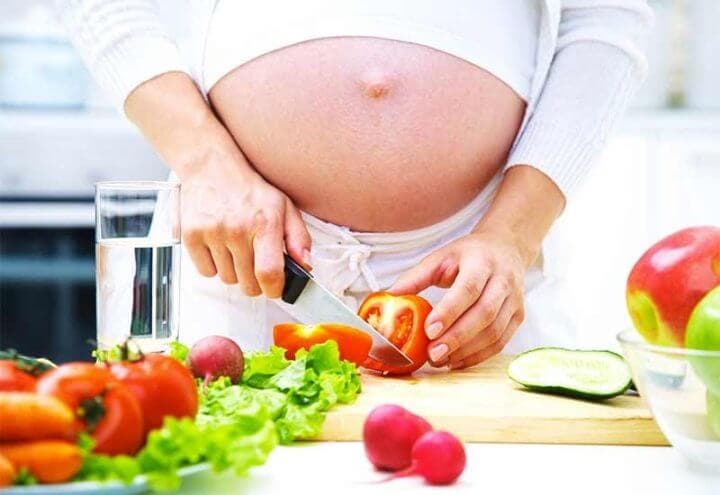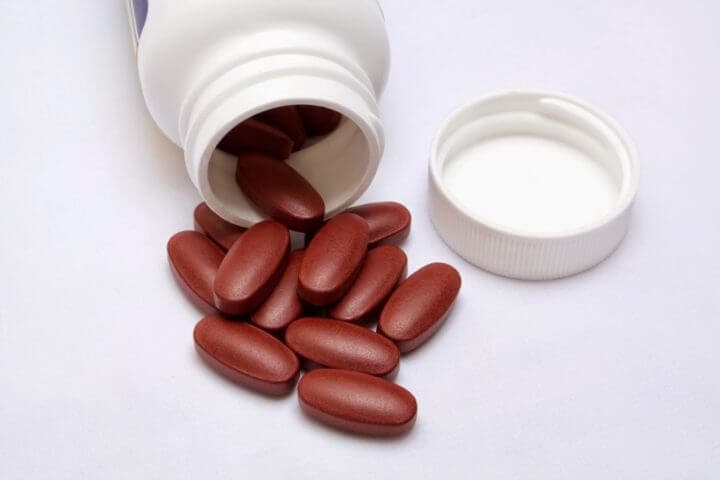Pregnancy is one of the most exciting experiences for most women. However, it can also be a confusing and overwhelming time for some expectant mothers.
Magazines, the internet, and advertisements flood women with tips on how to stay healthy during pregnancy. While most are aware that high-mercury shellfish, alcohol, and cigarettes are prohibited during pregnancy; many are unaware that they should avoid some vitamins, minerals, and herbal supplements.
Information on which supplements are safe and which are not often varies from source to source, complicating matters. Therefore, know which supplements are considered safe during pregnancy and which you should avoid.

Guide to supplements during pregnancy
1. Why take supplements during pregnancy?
Consuming the correct nutrients is important at every stage of life, but it is especially necessary during pregnancy, as women need to nurture both themselves and their growing babies.
For example, the need to consume macronutrients grows significantly, these include carbohydrates, proteins and fats. However, the requirement for micronutrients such as vitamins, minerals and trace elements increases more than the need for macronutrients.
Vitamins and minerals support maternal and fetal growth in all stages of pregnancy, and are vital in supporting some critical functions such as cell growth. However, while some women can meet this growing demand with a well-planned, nutrient-rich diet, others find it difficult. Hence, some pregnant women need to take vitamin and mineral supplements.

2. What reasons do women have for taking supplements during pregnancy?
2.1 Nutrient deficiencies
Some women may need a supplement after a blood test reveals a deficiency in a vitamin or mineral.
2.2 Dietary restrictions
Women who follow specific diets, including vegetarians and those with food intolerances and allergies, may need supplements to prevent micronutrient deficiencies.

2.3 Smoking
It is absolutely essential that mothers avoid tobacco during pregnancy, but those who continue to smoke have a greater need for specific nutrients such as vitamin C and folic acid.
2.4 Multiple pregnancies
Women who have more than one baby have higher micronutrient requirements than those who have only one.

2.5 Genetic mutations such as MTHFR
MTHFR is a gene that converts folate into a form that the body can use. Pregnant women with this mutation may need to be supplemented with a specific form of folic acid to avoid complications.
2.6 Poor diet
Women who do not consume or choose foods low in nutrients may need vitamin and mineral supplements to avoid deficiencies. In addition, experts from the American Congress of Obstetrics and Gynecology recommend that all pregnant women take a prenatal vitamin and folic acid supplement , as the idea is to fill nutritional gaps and prevent birth defects such as spina bifida.

3. Is it safe to take herbal supplements during pregnancy?
Besides micronutrients, herbal supplements are popular. One study found that about 15% of pregnant women in the United States use such supplements. However, alarmingly, more than 25% of these women did not inform their doctor that they were taking it.
While some herbal supplements can be taken safely, there are many that may be unsafe. In fact, while some herbs can help with common pregnancy complications, such as nausea and an upset stomach, others can be harmful to the mother and fetus.
Unfortunately, there is not much research on the use of herbal supplements in pregnant women , and it is unknown how these supplements may affect these women.

4. What supplements are considered safe in pregnancy?
4.1 Prenatal vitamins
They are multivitamins that are specially formulated to meet the growing demand for micronutrients during pregnancy . They are intended to be taken before conception and during pregnancy. However, prenatal vitamins are not intended to replace a healthy diet.
4.2 Folate
Folate is a B vitamin that plays an integral role in DNA synthesis, red blood cell production, fetal growth and development. Therefore, it is recommended that pregnant women take 600 micrograms of folic acid per day to reduce the risk of neural tube defects and congenital abnormalities such as cleft palate and heart defects.
Although adequate folate can be obtained through diet, many women do not consume enough folate-rich foods, so supplementation is necessary.

4.3 Iron
The need for iron increases significantly during pregnancy , as the maternal blood volume increases by almost 50%.
Iron is essential for oxygen transport, healthy growth of the fetus and the placenta. The recommended intake of 27 mg of iron per day can be met with most prenatal vitamins. However, pregnant women with an iron deficiency may need higher doses, and be prescribed by their doctor.

4.4 Vitamin D
This fat-soluble vitamin is important for immune function, bone health, and cell division. Deficiency during this stage in women has been linked to an increased risk of caesarean section, pre-eclampsia, preterm delivery, and gestational diabetes.
The recommended intake is 600 IU per day. However, some experts suggest that vitamin D needs during pregnancy are higher.

4.5 Magnesium
Magnesium is a mineral involved in hundreds of chemical reactions in the body, and it plays critical roles in immune, muscle, and nerve function.
Deficiency of this mineral during pregnancy can increase the risk of pre-eclampsia, chronic hypertension, and preterm labor. For this reason, some studies suggest that magnesium supplementation reduces the risk of complications such as pre-eclampsia, fetal growth restriction, and premature birth.

4.6 Fish oil
Fish oil contains DHA and EPA, two essential fatty acids for fetal brain development .
Consuming DHA and EPA may also boost infant brain development and decrease maternal depression, although research on this topic is inconclusive.

5. What supplements are not safe during pregnancy?
5.1 Vitamin A
Although this vitamin is extremely important for the development of fetal vision and immune function, too much can be harmful. Its accumulation in the body can have toxic effects that lead to liver damage. Vitamin A can even cause birth defects .
5.2 Vitamin E
This fat-soluble vitamin plays many important roles in the body and is involved with immune function. Despite the fact that vitamin E is very important for health, it is recommended that pregnant women not supplement with it.

5.3 Black cohosh
Black cohosh is a plant that is used for various purposes, including controlling hot flashes and menstrual cramps. However, it is not safe to take this herb as it can cause uterine contractions, which could induce premature labor.
5.4 Goldenseal
This plant, also known as Hydrastis canadensis, is used as a dietary supplement to treat respiratory infections and diarrhea, although there is little research on its effects and safety. It also contains a substance called berberine, which has been shown to worsen jaundice in babies.

5.5 Dong quai
It is a root that has been used for over 1,000 years and is popular in Chinese medicine. Pregnant women should avoid it because it can stimulate uterine contractions, increasing the risk of possible miscarriage.
5.6 Yohimbine
It is used as an herbal remedy to treat a variety of conditions ranging from erectile dysfunction to obesity. However, yohimbine should not be used in pregnancy , as it has been associated with dangerous side effects such as high blood pressure, heart attacks, and seizures.
Reference
- Kubala, J. Supplements During Pregnancy: What’s Safe and What’s Not. For Healthline [Revised February 2018]
